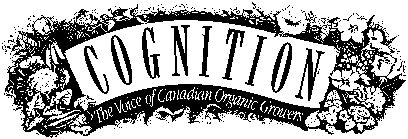

Cognition Index | Virtual Library
| Magazine Rack
Search
| Join the Ecological Solutions Roundtable
GLEANINGS:GENETICALLY ENGINEERED TOMATO
by Ann Cleary
The Animal and Plant Health Inspection Service (APHIS) of USDA is proposing to deregulate the FLAVR SAVR tomato, a genetically modified plant developed by Calgene Inc. The tomato has gone through eight APHIS-approved field trials in three states over five growing seasons to meet USDA regulatory requirements.
For Calgene, it would mean the longer-lasting tomato could be grown on a commercial basis without seeking further USDA permits. This deregulation is a result of the Food and Drug Administration’s May 29, 1992 Statement of Policy: Foods Derived from New Plant Varieties: Notice.
In a Bush administration press conference it was stated: "These new technologies will benefit all Americans by providing foods that are tastier, more varied, more wholesome...more palatable, more nutritious....and that can be produced more efficiently.... Fruits, vegetables and grains developed through biotechnology mark an evolutionary step in the production of new varieties, that will give producers new tools through which to introduce improved traits in crops to benefit growers, processors and consumers."
The genetic changes in the Flavr Savr tomato cause it to soften more slowly, increasing its shelf life by a week to 10 days. Calgene says it will use the trademark Flavr Savr on the tomato to help consumers identify it, but that remains to be seen.
Jeremy Rifkin, USA’s outspoken critic of biotechnology, says his Foundation on Economic Trends will make sure consumers can recognize the tomato as genetically engineered. He states that he plans to launch a "Pure Food Campaign", a multimillion dollar media effort to warn consumers as each new biotech food comes on the market.
In response to the Bush administration’s decision to ease regulations on food that has been genetically engineered, chefs in New York City’s best restaurants have formed a coalition to demand labeling and extensive testing of such produce. Several trade associations are expected to work at the national level to rescind the federal decision. If, however, bioengineered food is permitted without labeling, chefs may turn to local growers (and, it is hoped, organic ones) for their needs. The problem - apart from any other consideration - is that if food is sold without labeling, the food could contain hidden genes harmful to customers with allergies.
One thousand chefs around the country have pledged not to use or serve genetically engineered foods and they are planning to place an emblem on their menus indicating this.
The American Vegetable Grower, in August, 1992, reported an interview with one of the Flavr Savr tomato test growers in Florida, who wishes to remain anonymous. He said that yields were one-third less than other cultivars he grows and fruit was only medium sized. "We were forbidden to taste it as part of our contract - but we cut one open and licked the knife. The flavor wasn’t that great either!" Meanwhile four big Florida growers have signed on with Rifkin’s campaign to try and stop the bioengineered tomato from getting to market without special labeling.
A new report issued recently by the U.S. Office of Technology Assessment, entitled A New Technological Era for American Agriculture, expresses some doubts on food safety measures for bioengineered products. It states that EPA has not yet established guidelines on tolerance levels for pesticidal plants, and is inconsistent in its ability to establish science-based regulations for transgenic plants which are rapidly approaching commercialization.
Public concern for the environment, food safety, industry monopoly and in-stitutions will be matters of debate. Policy needs to be established as it does in Canada, where field testing of a large number of genetically engineered plants is taking place. Strict monitoring of field testing is essential and if genetically engineered plants do reach the market, although the necessity for them is doubtful, they must be labeled as such. People have a right to know and be able to choose whether they want genetically engineered, irradiated, organically- or conventionally-grown food.
A 29-page summary of the above mentioned report is available free of charge from the Office of Technology Assessment, U.S. Congress, Washington DC 20510-8025. The complete report can be ordered from the Superintendent of Documents, U.S. Government Printing Office, for $23. U.S.
Copyright © 1993.
Ann ClearyReprinted with permission. All rights reserved.
Info Request | Services | Become EAP Member | Site Map
Give us your comments about the EAP site
Ecological Agriculture Projects, McGill University (Macdonald
Campus)
Ste-Anne-de-Bellevue, QC, H9X 3V9 Canada
Telephone:
(514)-398-7771
Fax:
(514)-398-7621
Email: info@eap.mcgill.ca
To report problems or otherwise comment on the structure of this site, send mail to the Webmaster